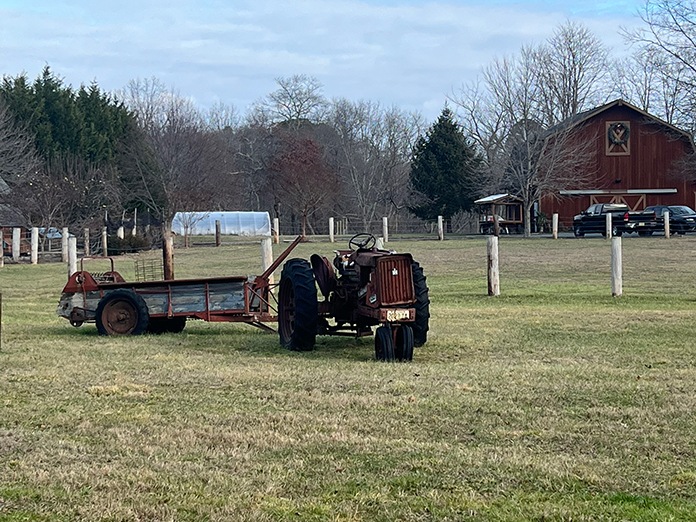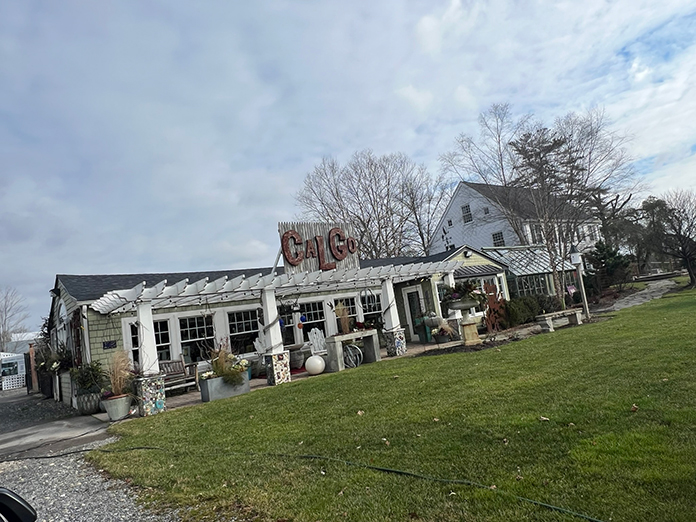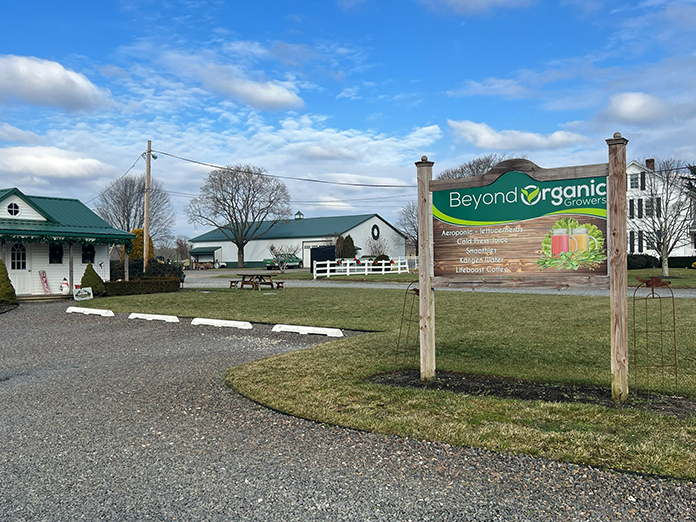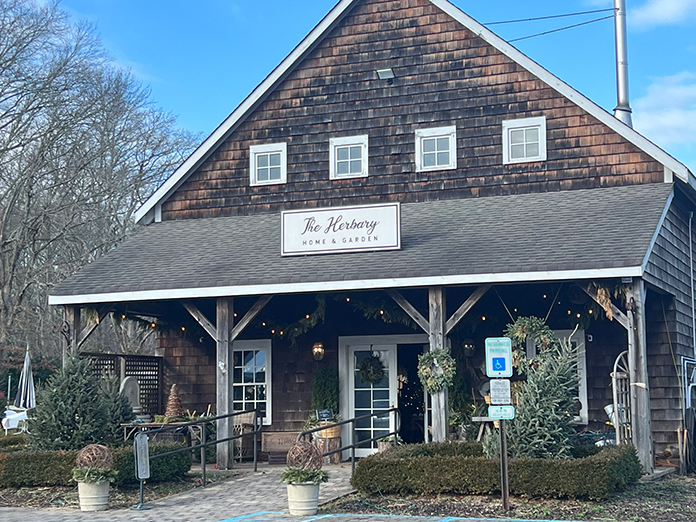
HOWELL – A wave of slight relief washed over the local farming community as news broke that five proposed land use ordinances have been pulled back for revision. The ordinances, which had raised concerns about their potential impact on local farms, will now undergo further scrutiny and public input before being reintroduced.
The proposed changes to the township’s local regulations sparked immediate apprehension among members of Howell Farmers Unite, a grassroots organization dedicated to protecting the municipality’s agricultural heritage. In a letter circulated to fellow farmers, the group voiced their worries about the ordinances’ potential to hinder the viability of “Qualified and Preserved Farms,” particularly regarding restrictions on Farm Related Special Events.
Farmers have previously complained of receiving conflicting information from township departments, citing inconsistencies and roadblocks. They claim fees are being piled on like unwelcome guests. Some feel they are being pushed into making variance applications that come with exorbitant costs and no guarantee of approval.

Calgo Gardens serves as an example of one local farm that went through the variance process to expand uses on its premises legally.
Frustration simmered as a dozen local farmers continued to pour out their grievances to Deputy Mayor Evelyn O’Donnell at a recent Township Council meeting. Complaints boiled down to an overriding feeling that the township did not support them as small business owners.
The farmers’ pain points were numerous as some openly described their struggles and attempts to stay afloat. The ability to host events, crucial for their financial well-being and community engagement, has been of particular concern.
O’Donnell said she pushed for an expedited drafting of the new ordinances based on her understanding of the group’s needs regarding special events and their potential financial benefits.
“I was rushing everything because I thought that’s what everybody wanted so they could still keep making money,” shared O’Donnell. “I was then told that’s not what was wanted and told to put on the brakes because they (the proposed ordinances) weren’t liked.”
With currently proposed ordinances thrown out, farmers may have to wait until the spring for approval of special events on their land. The town’s silence on requests for a grace period has fueled worries about lost income and stalled plans.

Theresa Reid from Beyond Organic Growers expressed dismay over the town’s stance on special events. Reid, the owner of a preserved farm, was quite pleased when Governor Phil Murphy signed a bill last year that allowed her farm to diversify its income streams by hosting a specified number of events on its land.
The legislation also mandates compliance with all relevant state and local laws and ordinances. This includes regulations addressing food safety, litter, noise, solid waste, traffic, and the overall protection of public health and safety during special occasion events.
“Because we don’t have the special occasion events, I just put my son on unemployment in November,” Reid shared. “I have a $25,000 Visa bill, and I’ve gone to Farm Credit and taken different separate revolving credit lines. It’s the only way we’re going to survive this winter.”
Reid said her 33-year-old son is a fifth-generation farmer and she’s concerned about what the future holds for him as he can barely make a living. She said that she can’t even afford to take a salary for herself, although her passion for farming translates to a labor of love.
A number of people have asked Reid to schedule events such as bridal showers on her farm. However, the uncertainty of the ordinances and their limitations stops her from setting aside dates.

“I could not do that to somebody,” said Reid. “I am being honest with people and telling them that I’m not sure where we are going to be – I’m not willing to take that risk.”
To add to the complexity of the situation, Beyond Organic Growers had previously received approval from the local fire department to host farm to table dinners for up to 50 people in their greenhouse.
“What is the difference between a 50-person farm to table dinner and a 50-person bridal shower?” Reid asked. “It makes no sense to me. I don’t think anybody logically can debate that.”
According to Reid, the township fought her six years ago when she went before the Board of Agriculture regarding the farm to table dinners, workshops and yoga classes. The board said the use was permitted under the “Right to Farm” as the activities promote the farm and act as a marketing tool.
Rosemarie Bird of the Birds Farm stressed the importance of consulting the Right to Farm materials issued by the state in developing ordinances. She said the program started with wineries as a test that worked well with vineyards.
Critics of Howell’s proposed ordinances considered them cumbersome and are upset that no one from the farming industry was involved in drafting them. Farmers have asked that state and county representatives meet with them, together with Matt Howard, Howell’s Director of Community Development and Land Use Officer.
“There are a lot of details in them (the proposed ordinances), even for the small qualified farms,” pointed out Betty Lou Velez, the owner of Squankum Brook Farm. “For one, everything that you are going to for the event has to have a 50-foot setback.”
Velez reiterated her concerns about the potential rigidity of the proposed ordinances and inquired about the township’s willingness to be flexible in their implementation. She cited the recent reversal of the beekeeping ordinance as a reminder of how overly restrictive regulations could have negatively impacted her farm.

“The way that it’s set up now is not really the American way because you should not be stifling anybody’s growth,” added Velez. “This shouldn’t be ‘you can have 30 up to 100 people.’ There’s nothing more here in the ordinance than 100 people. She (Theresa Reid) has over 200 acres she should not be held to that.”
Velez works full time during the day as a middle school guidance counselor and has no immediate plans for hosting special events. However, she would like to ultimately open her farm to educational tours and create pleasurable learning opportunities for children.
Bear Creek Herbary’s owners, Ron and Susan Springer, added their frustration concerning restrictions placed by the town for special events. Ron said that he understood there would be various levels of consideration based on the size of events. However, he suggested a grace period for at least smaller events.
“Not only would it help financially,” Ron shared. “It would also educate everybody to see how smoothy it went in the transition and to see what the issues really are.”
Ron also questioned the event application fee and suggested it would make better sense to have a requirement for an annual licensure fee, which would include parking details and access for emergency vehicles.
“What I think government forgets is that we have the greatest farming community,” said Elaine Taylor, who owns Shangri La Farm and chairs the Howell’s Farmers Advisory Committee. “We have to cherish that, and we have to nurture it. If we don’t do that, we know people are going to leave and we don’t want anybody to leave.”
“The goal of Farmers Unite was obviously to have our voices heard in the making of these ordinances,” Velez added. “And also the future goal of marketing ourselves to our community. And to not only list ‘Grown in Monmouth’– but ‘Grown in Howell.’”






